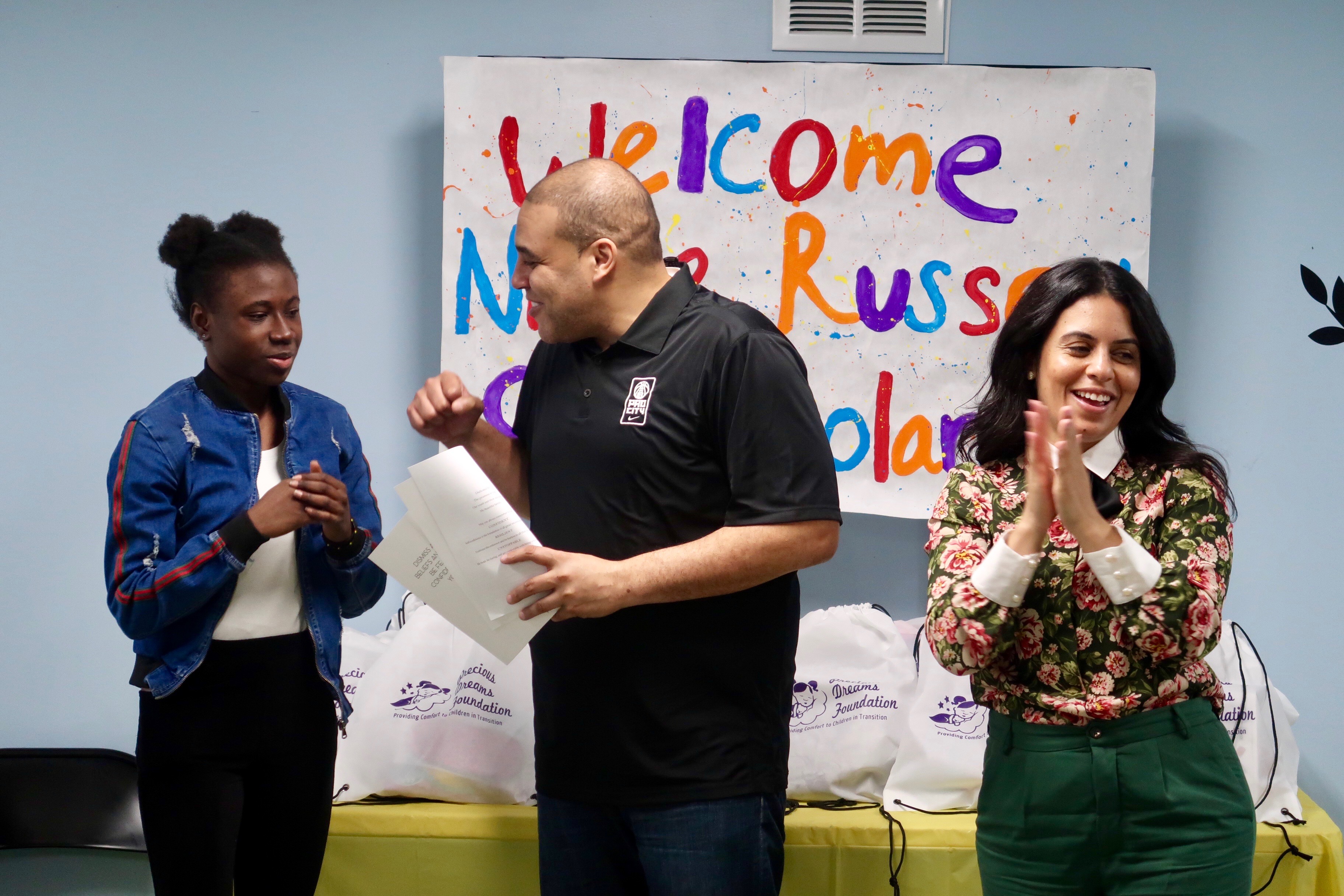For the better part of a year I have been on the board of Precious Dreams Foundation, a New York based non-profit that provides bedtime comfort items and mental health programs for children in transitional housing. But it wasn’t until my recent participation in one of PDF’s signature Comfort Drops that I witnessed its genuine impact on the children it serves. My sister, Elaine, accompanied me to Adam House I, a homeless shelter in Harlem. PDF executive director Nicole Russell was already there when we arrived, carrying care bags she had customized—complete with each child’s name carefully written on the inside seam.
Russell began the session by telling the group about her foster sister, who suffered night terrors when she first came to live with Russell’s family. Relief, she shared, ultimately came in the form of a bedtime routine. Author of Everything a Band-Aid Can’t Fix, Russell stressed the connection between learning how to self-soothe and getting a good night’s sleep. She demonstrated the first step in the process, a mental health check-in, by simply asking “How are you feeling at this very moment.” After the children exclaimed where they were on a scale of one (low) to five (high), she explained how they could take steps to increase or maintain their score, to be in a calm place before bed. Listening to music, talking to someone and journaling were popular ways for the girls to relax at night. Some like a cup of tea. Ten year-old Paul plays on his phone before bed. Russell stressed that there are no right answers, but encouraged participants, ages 10 through 15, to identify what works best for them. In her engaging manner, she conveyed a simple but powerful message: finding healthy ways to cope with obstacles to sleep—adversity, stress or just a bad day—is critical to comforting yourself, setting the stage for rest and sweet dreams.
Motivational speaker Angelica Alam, creator of Turn Your Goals Into Actions, a journal, spoke about dreams of a different sort. Using the first few chapters of her journal as a template, Alam had the group share their biggest hopes for the future. Awe wants to be a judge and to be happy every day. Angelica wants to be a neurologist. Missy has her eye on fashion design, including owning her own boutique. Not surprisingly, Paul wants to be a professional wrestler. Symphony is determined to be an artist; Naimah, a chef; and Jaida wants to own an accounting firm. After Alam helped every child envision what their life could be, she empowered them with tools to get there. They brainstormed about resources—what they had and what they needed to achieve their goals. She had them chant affirmations to build momentum and self-esteem, such as: I will be the best; I am powerful; Nothing will hold me back. The excitement in the room was palpable. The elevated mood was reflected best by the eleven year-old girl who rated her mental state a “one” when the session began. She declared she was now a “five” and wanted to be every day.
Elaine and I had a host of feelings as we left the shelter, escorted to the door by one of the directors and two of the teen girls. They were clutching their comfort bags which contained, among other things, Russell’s book and Alam’s journal, as they hugged us good bye. And at that moment it struck me that what PDF offers to homeless children, and those in foster care, goes far beyond the bag.


